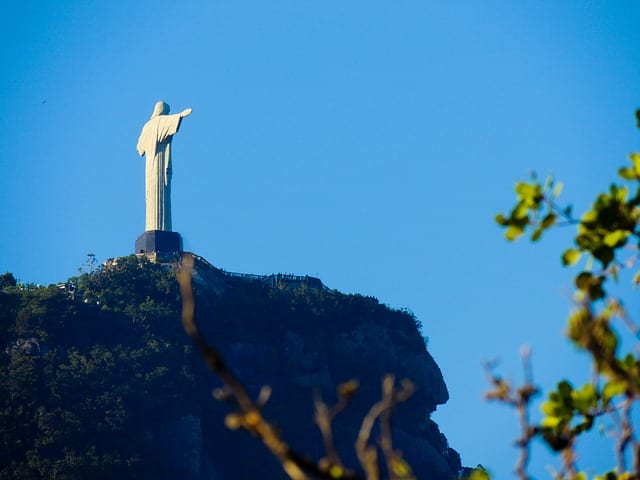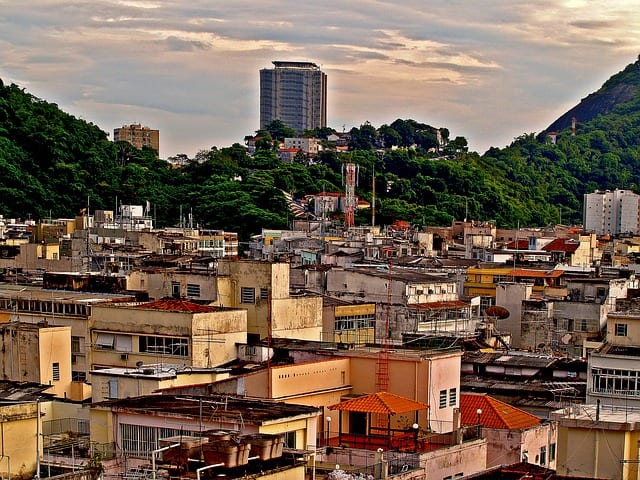
How Much Does It Cost to Live in Brazil?
An attack on all the senses, Brazil is one of the world’s top tourist destinations. The 2016 Olympics thrust the South American country into the limelight further and many have since moved to the party capital of the world to benefit from the incredible climate, good high-ranking salaries and welcoming locals.
The Legatum Institute, a London-based think tank, release their Global Prosperity Index annually. The survey ranks the most prosperous countries in the world. Many assume prosperity is used in reference to the financial standing of a country and, while this is included, the Legatum Institute considers more factors in its ranking.
Ranking in 52nd place in 2016’s report (out of 149 countries) was Brazil. This puts Brazil in the top 35%, with its rankings for natural environment (28th), personal freedom (36th) and economic quality (44th) helping it secure a upper-middle ranking. Brazil’s fell outside the top 50 due its placement for safety & security (89th) and business environment (90th).
Whilst on the surface Brazil may seem like a dream place to live, there are aspects of life that are somewhat undesirable, many circulating around money. So, despite the weather as a unique selling point, how much does it cost to live in Brazil?
 Brazil’s Economy
Brazil’s Economy
Home to the ninth largest economy in the world by nominal GDP, you’d think this would suggest the Latin American country has a stable economy. Between 2002 and 2012, Brazil had one of the fastest growing economies in the world. With a President who only recently narrowly bypassed being tried for corruption, expats and Brazilian people have very little faith in the economy.
In a bid to correct imbalances in the hobbled economy, the Brazilian government are trying to pass a pension reform by October and a tax overhaul by the end of 2017. Both are critical to Brazil’s future.
Currency
The Brazilian real (BRL) is the official currency of Brazil and each real is divided into 100 centavos. It is distinguished by a dollar sign, however, to separate it from other countries which use the same symbol, expats may see a figure represented as R$20. Coins include 5, 10, 25 and 50 centavos, as well as 1 real. BRL notes come in denominations of 2, 5, 10, 20, 50 and 100.
How to Rent or Buy a House in Brazil
Property is one of the more complicated investments in Brazil for foreigners looking to buy. However, once everything is in place, the process can become much more straightforward. From beachside flats to rural farmland plots, there is a wide variety of homes on the market.
Expats wanting to buy in Brazil must, first, obtain a CPF number from the Brazilian embassy in their home country. This will be issued with a tax registration number, enabling foreigners to open a bank account in Brazil and, thus, register the amount of money you plan on bringing into Brazil.
It is best for expats to get the help of a lawyer to help you through the process when buying a house in Brazil. Contracts are often drawn up in Portuguese and English, so make sure your legal representative is fluent in both.
Before you embark on securing a property, ensure you have the correct visas, residency and work permits. Foreigners must prove they have over £32,300 available to them and, even then, only a five-year conditional visa will be granted. For retirees, you must receive a monthly pension of over £1,292.
Whether you want to buy or rent, expats can use online property portals to search for properties to view. However, newspapers such as Jornal do Brasil and O Estado de Sao Paulo are the best places to search. They are in Portuguese, but most expats can get by with a phrase book.
Just the same as those who wish to buy, expats wanting to rent a home will require the Brazilian Identity Card, also known as the CPF. The only catch with this is that it can take months to finalise. This is tricky for expats who have moved to Brazil for work purposes, they often end up living in hotels until all their residency paperwork has been processed.
Renting prices in Brazil are much more negotiable than other countries. However, expats are often surprised at how expensive renting can be. However, this is usually due to the need for a city location, or being close to schools. Most landlords require one to three months’ rent as a deposit and expats should be aware that rental values are usually void of utilities and property taxes.
Most estate agents and landlords speak Portuguese. It is best to utilise a bilingual friend throughout the process of securing a rental property.
Expat Healthcare in Brazil
Expats can receive free healthcare in any of Brazil’s state hospitals due to their public healthcare system. However, these facilities are often not on par with those in Europe and the US, so the majority of foreigners take out expat insurance to ensure they have access to the best should they need it.
Individuals who utilise private hospitals and clinics do not have to visit these same facilities in an emergency. All of Brazil’s government hospitals will provide treatment to anybody for free. Usually, those who have private insurance and were rushed to a state hospital will remain there until they are stable. They will then be transferred to a private medical facility.
 Jobs in Brazil for Expats
Jobs in Brazil for Expats
Brazil has an unemployment crisis on its hands, with around 14 million people out of work. However, many of these people tend to be Brazilians who live in poverty or have not had the same educational opportunities as those from working or upper-class backgrounds.
Many expats end up moving to the country due to being relocated by an employer, so finding a job isn’t an issue. However, for expats not in this position, the easiest option for native English speakers is to become a language teacher. Teaching English is a fantastic option and there are countless jobs available, sites like ESL Employment, Total ESL and Transitions Abroad are some great sites is this is an avenue for you.
Sectors where expats tend to work include:
- Finance and banking
- Industrial and manufacturing
- Hydroelectric power
- Telecommunications
- IT
Comparison to UK
The world’s largest database, Numbeo, has a vast selection of user contributed data in regards to Brazil. Compared to the UK, the cost of living is lower in Brazil.
The tables below provide an over view of the differences in costs between Brazil and the UK. Please note that all Brazilian prices have been converted into British pounds.
| Groceries | UK Price (£) | BRL Price (in £) | Cheaper Country? |
| Milk (1l) | £0.90 | £1 | UK |
| White bread (500g) | £1.00 | £1.49 | UK |
| Eggs (12) | £1.88 | £1.37 | Brazil |
| Local Cheese (1kg) | £5.39 | £7.88 | UK |
| Banana (1kg) | £1.01 | £1.16 | UK |
| Water (1.5l bottle) | £0.96 | £0.61 | Brazil |
| Transport | UK Price (£) | BRL Price (in £) | Cheaper Country? |
| Petrol (1l) | £1.17 | £0.99 | Brazil |
| One-way ticket | £2.50 | £0.94 | Brazil |
| Monthly pass | £130 | £48.74 | Brazil |
| Taxi (1km) | £4 | £0.57 | Brazil |
| Utilities (Monthly) | UK Price (£) | BRL Price (in £) | Cheaper Country? |
| Electricity/Heating/Water for 85m2 apartment | £147.29 | £86.94 | Brazil |
| 1 minute of PAYG talk time | £0.13 | £0.39 | UK |
| Internet (10 Mbps, unlimited data, cable/ADSL) | £23.98 | £26.21 | UK |
| Clothing | UK Price (£) | BRL Price (£) | Cheaper Country? |
| Jeans (Levi or similar) | £62.48 | £49.17 | Brazil |
| Dress (chain store) | £31.24 | £38.99 | UK |
| Nike running shoe | £66.04 | £78.04 | UK |
| Leather business shoes | £78.92 | £64.62 | Brazil |
| Eating Out | UK Price (£) | BRL Price (£) | Cheaper Country? |
| Fast food meal | £5.45 | £6.15 | UK |
| Inexpensive restaurant | £15 | £7.14 | Brazil |
| 3 course, mid-range, 2 people | £50 | £28.31 | Brazil |
| Cappuccino | £2.62 | £1.49 | Brazil |
| Coke/Pepsi | £1.22 | £1.16 | Brazil |
| Imported beer | £4 | £3.69 | Brazil |


